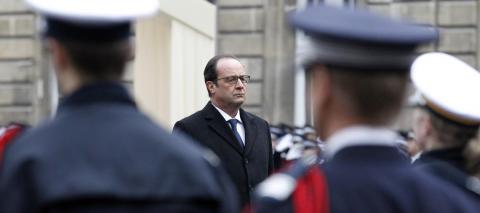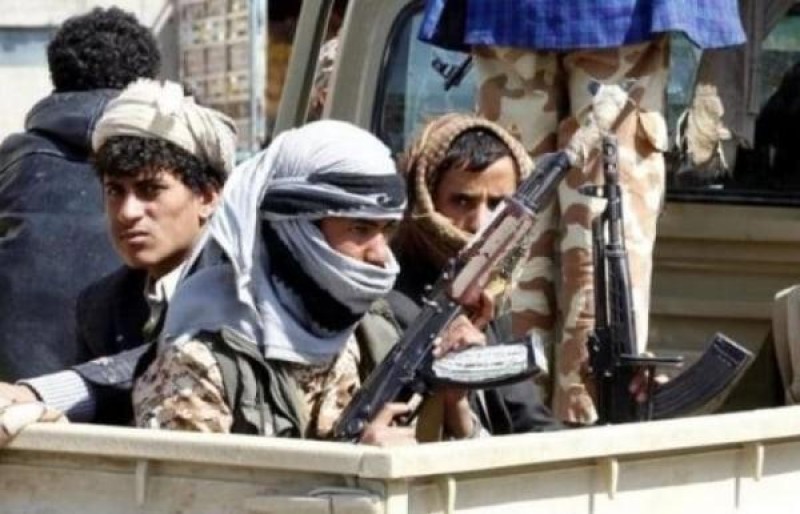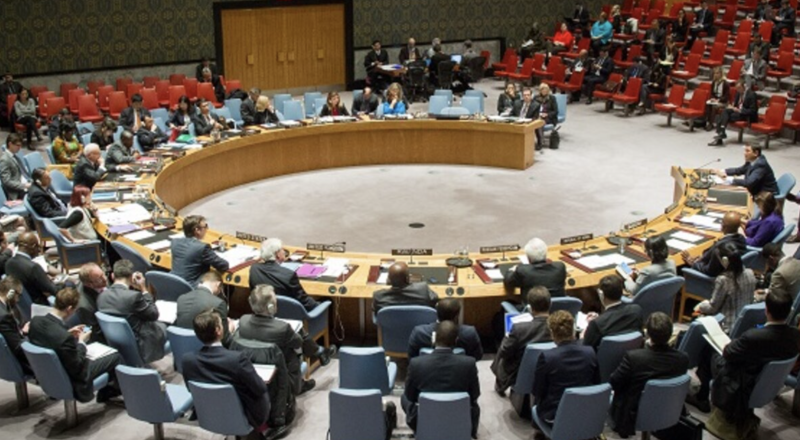New al Qaida claim in Paris attack offers no hard evidence of link
The top spokesman for the Yemen branch of al Qaida publicly took credit Wednesday for the bloody attack on a French satirical newspaper, confirming a statement that had been emailed to reporters last week.
But the 11-minute video provided no hard evidence for its claims, including that the operation had been arranged by the American cleric Anwar al Awlaki directly with the two brothers who carried it out before Awlaki was killed by a U.S. drone strike in 2011.
The video includes frames showing Awlaki but none of him with the brothers, Saïd and Chérif Kouachi, nor any images of the Kouachis that haven’t been shown on Western news broadcasts for days.
Nasr al Ansi, who frequently makes statements for al Qaida in the Arabian Peninsula, said the attack had been ordered by Ayman al Zawahiri, the successor to Osama bin Laden. The video was released via al Malahem online network, AQAP’s media outlet.
Ansi called the Charlie Hebdo attackers “heroes of Islam” and said the assault that killed 12 at the paper’s office was revenge for its frequent irreverent depictions of Islam and the Prophet Muhammad.
Tellingly, the video didn’t take credit for subsequent attacks that killed a French policewoman and four French Jews. Instead, it called the perpetrator of those attacks, Amedy Coulibaly, a “mujahid brother” – mujahid is the Arabic word for holy warrior – and said his actions were a “blessing from God” that “coincided” with the attack on the newspaper office. Ansi asked God to bless the “mujahid brother.”
In a television interview, Coulibaly had called himself loyal to Islamic State leader Abu Bakr al Baghdadi, an assertion that confused the narrative of AQAP involvement in the attack. The Islamic State and al Qaida are fierce rivals for jihadi loyalties, and AQAP has backed al Qaida in the dispute.
But the full story of Coulibaly’s involvement in the plot has yet to unfold. French authorities told local media outlets they were investigating claims that Coulibaly had taken out a 6,000 euro loan, about $7,100 at current exchange rates, from a French financial institution and had used the money to purchase weapons possibly used by the Kouachi brothers in their attacks, although French officials stressed to the local media that the link wasn’t yet definitive. The Belgian gun dealer who sold him the weapons has turned himself in and is cooperating with the investigation, according to Belgian authorities.
In a video released after his death, Coulibaly, who was killed when police stormed the grocery where he’d taken hostages, said he’d provided several thousand euros to the Kouachis so that they “could complete their mission.”
White House spokesman Josh Earnest said the early indications were that the video appeared to be authentic and that it was “another clear indication of the wanton brutality of that organization.” But he said the United States hadn’t concluded that AQAP was behind the attack. He said the U.S. was cooperating closely with France on the investigation.
Wednesday’s video closely tracked the language used in a statement that was emailed to McClatchy and other reporters last Friday by a known al Qaida member. That statement said AQAP’s leadership had “directed the operation” and that the attack was in line with al Qaida founder bin Laden’s warning to “the West about the consequences of persistent blasphemy against Muslims’ sanctities,” words that were repeated in the video.
The video – titled “Vengeance for the Prophet: A Message Regarding the Blessed Battle of Paris” – opens with a graphic of the Eiffel Tower in Paris disappearing into a cloud of smoke and begins with Ansi explaining that the attack was plotted in Yemen in an “arrangement’ between the Kouachi brothers and Awlaki, who was then AQAP’s leader of external operations.
Much of Ansi’s presentation, which showed news footage of the 9/11 attacks as well as footage of the gun battle between the Kouachis and French police last week, was devoted to praising the operation and calling upon the “young lions” of Islam to act to avenge insults to Islam. He said that of all the wrongs done to Muslims, “the most dangerous are their attacks on our prophet and religion.”
“If we lose those two, then we lost the rest,” he said.
He belittled the gathering of more than 1.6 million people in support of the Charlie Hebdo victims as a sign of weakness. “Look at how they gathered, rallied and supported each other, strengthening their weakness and dressing their wounds,” he said, as a photo was displayed of the throng that gathered Sunday in Paris’ Place de la République.
He urged Muslims to avoid letting “them unite more in insulting our prophet than we unite in defending him.”
In one sequence that amounted to a direct threat, Ansi called for “vengeance for Muslim blood spilled, honors defiled, a Quran that is torn” while a photo was displayed in the background of American pastor Terry Jones, who made headlines two years ago with his calls to burn the Muslim holy book, the Quran.
France was repeatedly mentioned as supporting military operations in northern Africa and Mali, as well as being behind the slaughter of thousands of Muslims in the Central African Republic, which has faced a terrible ethnic war over the past year.
Ansi also criticized the notion of freedom of speech as hypocritical, saying “the freedom is always tamed (by the West) except when spreading vile and waging war on Allah.” He said no such freedom existed when discussing the Nazi genocide of the Jews in the Holocaust, where there was “no freedom of expression or exchange of ideas.”
The Kouachi brothers had claimed during the attack and in the two days afterward that they were working on behalf of al Qaida in Yemen. French officials have confirmed that Saïd Kouachi traveled to Yemen between 2009 and 2011 for training with the group and said they were attempting to determine the validity of a claim by Chérif Kouachi in a television interview before his death that he, too, had visited Yemen and had met with Awlaki.
The Kouachi brothers and Coulibaly were well-known to French security services, sparking questions of how the plot was missed.
U.S. Rep. Ed Royce, R-Calif., the chairman of the House Foreign Affairs Committee, told CNN on Tuesday that the United States had told French officials in 2011 that one of the Kouachi brothers had visited Yemen and that the French had monitored him for four years after his return.
But Royce said the French had dropped their surveillance when the brothers took no steps to carry out a plot.
The French magazine Le Point reported that French Prime Minister Manuel Valls had blocked requests to monitor the Kouachis’ phones, over privacy concerns.
Sun herald




